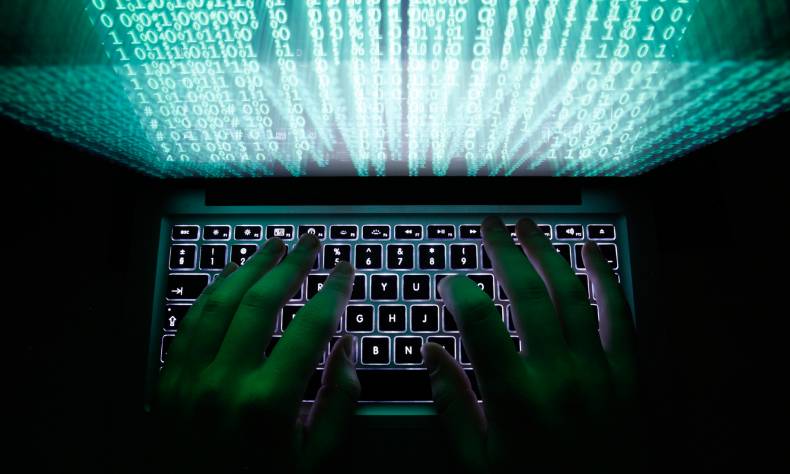
Getting Hacked Off
A matter of weeks ahead of Chinese President Xi Jinping’s diplomatic visit to the White House, it has been reported that the US government may be on the verge of imposing a string of financial sanctions and even criminal indictments on Chinese individuals and businesses behind the cyber hacking of the US private sector.
So far, the White House has remained rather tight-lipped on the subject of China’s alleged digital espionage shenanigans. Most notably, unlike other US government bodies it refrained from naming China as its chief suspect behind the OPM hack. However, according to The Washington Post, the White House’s silence may soon be broken. In an article published on August 30th, the journal has claimed that several US government officials – speaking on the grounds of anonymity – have affirmed that the Obama administration may officially issue the sanctions this week.
Over the past years, there has been a surge in allegations by the USA against China for cyber spying on not only American businesses, but also on its government organizations. In return, China has continuously condemned the accusations as groundless. The most recent high-profile case involves the hacking of US’ Office of Personnel Management, which has been dubbed a ‘cyber 9/11’. The incident, which was announced in June 2015, saw the theft of personal records of an estimated 21.5 million US citizens – including those of past and present federal employees – and gave rise to fears that China may be seeking to identify US intelligence agents, as well as blackmail US citizens in order to recruit them as spies.
However, the US’ supposed sanctions and indictments will not be in response to the OPM hacking scandal, but to the cyber spying of US firms. According to certain US government officials, China’s economic espionage has resulted in the theft of billions of US dollars in intellectual property and trade secrets. The Washington Post even goes so far to claim that Chinese hackers have stolen “everything from nuclear power plant designs to search engine source code to confidential negotiating positions of energy companies.”
Although the US did indict five members of the PLA in 2014 on the grounds of hacking American firms in order to profit Chinese businesses, this new combination of criminal indictments and sanctions would certainly signal the nation’s most extreme reaction towards Chinese hackers.
As a result, one can only ask what could be the impact of such a move.
On the one hand, the breakthrough move would make it crystal clear that the US will fight back against the economic espionage of other countries – even if they are an important world power such as China. Similarly, many US citizens may feel relieved that President Obama finally appears to adopt a more stern approach to such foul play.
Likewise, the news of sanctions and indictments may be gladly welcomed by many US citizens who seem restless with President Obama’s – arguably – lax response to China’s supposed espionage. Indeed, in the wake of the OPM hack, bitter media headlines such as ‘China crossed Obama’s cyber ‘red line’ and he’s not doing anything about it’ ( The Business Insider) have not been rare. The fact that the news of the US retaliation was leaked before Xi’s visit with Obama suggests that the US President’s intends to apply even greater pressure on the Chinese in order to protect US industry.
In contrast, some may argue that by striking back at China, the US may actually take a very big step in the wrong direction. One that could both strain the diplomatic ties between the two superpowers, and also place US businesses in jeopardy. If the Obama administration does go through with such a penalty, it’s very likely that China would offer the US a taste of its own medicine. Samm Sacks, a China analyst at the Eurasia Group, stated that “[if] these sanctions come out, you’re definitely going to see retaliation against U.S. companies,” (The Daily Beast.) Hence, Cui Tiankai, the Chinese Ambassador to the US, seemed to hint at the danger of the US taking such action, by affirming that “nobody will do anything so nonconstructive,”( Forbes.)
At the same time, one could even question whether the Obama administration really does intend to follow through with such a dramatic move, or whether it may simply be seeking to frighten off Chinese hackers by raising such a threat. This idea is echoed by Scott Kennedy, the deputy director of the Freeman Chair in China Studies at the Center for Strategic and International Studies in Washington, who told The Daily Beast that “ [the US is] hoping that by at least pulling out the baseball bat they might not have to swing it.”
As a result, if the US actually does impose such penalties on China, the move would definitely not aid their relationship. However, this is a risk that President Obama may be willing to take in order to safeguard US businesses. Nonetheless, one may argue that instead of focusing on hitting back on the other party, it may be more worthwhile for the US to invest in heightening their online security measures. After all, The Diplomat points out “we are living in a world in which this kind of digital espionage is the new normal.”
Like it or not, as technology advances, so will the tricks of online hackers. The new challenge lies in staying a step ahead.
 Facebook
Facebook
 Twitter
Twitter
 Linkedin
Linkedin
 Google +
Google +



Comments are closed.